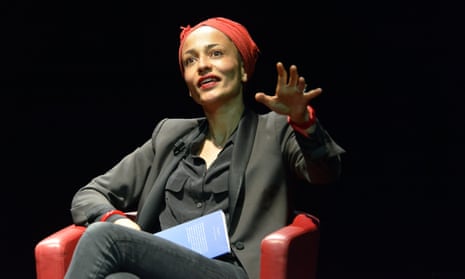The SI Leeds Literary prize for black and Asian women, which celebrates the work of unpublished writers from a group under-represented on our bookshelves, began accepting entries earlier this month. The UK’s first books festival dedicated entirely to writers of colour, Bare Lit, also makes its debut next month. So, what is all the fuss about? And what’s in it for the rest of us?
There are those who would argue that prizes for women of colour are unnecessary, that not every novelist deserves recognition, that having financially successful BAME writers will do little for the rest of us. The problem with this argument is that it requires a balanced playing field on which to compete. This is not something that can be said of the publishing industry.
According to Equality in Publishing (Equip), an organisation that promotes equality across publishing and bookselling, 97% of agents are white. Meanwhile, Writing the Future, a report published last April, found that 47% of BAME writers had an agent for their first novel, compared with 64% of white novelists. Once writers got a foot on the publishing career ladder, 53% of BAME authors remained without an agent, against 37% of white authors.
It’s not a lack of talent that holds back black and Asian women, it’s a lack of opportunity. You can’t land a deal for a book that gives fresh insight into one’s heritage and struggles if agents and commissioning editors fail to see past their cultural limitations. But that, according to Danuta Kean, editor of Writing the Future, remains a huge challenge for BAME writers. Kean’s report was first published 10 years ago, but she feels things have moved backwards since then.
“Schemes were set up to change the industry and improve diversity, we had writers like Monica Ali and Zadie Smith on the crest of a wave, but a decade on and things are worse than they were,” says Kean. “What we thought was change turned out to be a trend. People who should have worked their way through the industry to the higher echelons have dropped out. And we must find out why.”
Cash prizes are not enough to change the landscape or help writers achieve success. Changing an industry in this way can be a lonely and exhausting business. Those who aspire to do it need to be supported and celebrated. As a British Pakistani woman growing up in inner-city Bradford, my heritage and life was not reflected on the shelves of my local library and bookshop. It still isn’t. Writing a book is a huge undertaking, and difficult enough without knowing that the gates are closed to you because of your skin tone. A role model can mean the difference between quitting and carrying on.
The SI Leeds Literary prize was set up by the Leeds branch of Soroptimist International, a global organisation that aims to transform the lives of women across the world. The winning writer will receive £2,000, as well as ongoing support.
“The award recognises that you need to keep honing your craft as an author and gives you access to potential enablers and gatekeepers within the industry,” says prize advocate Irenosen Okojie. “Most prizes just give you money and send you on your way. We are part of a legacy of creating opportunities and platforms for women.”
The struggles faced by female writers are different to those faced by men. Despite changes in society, women are still often the default parent and called upon first to sacrifice their time. Black and Asian women face all the difficulties of their white counterparts with the added challenge of scant opportunity.
It’s predicted that, by 2051, one in five people in the UK will be from an ethnic minority background. In London, the proportion of BAME individuals is already 40%. Mixed heritage is the fastest growing ethnic group in the UK, with over one million people falling in to this category. This figure is expected to more than double over the next 30 years.
“This means publishers’ present concentration on the white, 35- to 55-year-old female will not reflect the society of the future,” said Danuta. “It’s not about recognition. It’s about sales. Publishing is about business. There are very strong arguments about the economics of diversity. If we don’t have an industry that reflects society as a whole and fails to engage with it, that industry will fail.”
That’s not to say that books by black and Asian woman are never published; they are. But writers often find themselves pressurised into presenting a white perspective of their cultures, promoting stereotypes and denying true diversity. Asian women are encouraged to write about oppression and forced marriage, while representations of black culture include absent fathers and gangs.
According to Writing the Future, BAME authors are more likely to be published in literary genres than in mainstream fiction. Since sales in this genre are lower than in others, black and Asian people are less likely to be able to make a living through writing alone.
We need awards for women of colour because they provide a platform on which to unite and force change. Power is never given easily, and if the British publishing industry is to survive it must accept its shortcomings and begin to embrace diversity long term. Prizes that support women of colour allow writers to tell their truth and in doing so broaden our worldview.
The closing date for submissions to the SI Leeds Literary prize is 30 April 2016

Comments (…)
Sign in or create your Guardian account to join the discussion